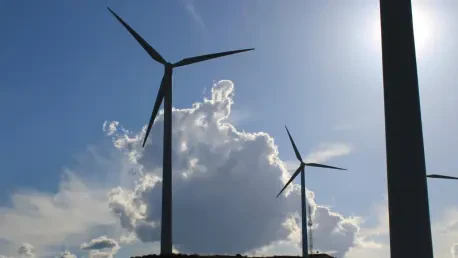The recent decision by the Export-Import Bank (Ex-Im) to approve a $5 billion loan for the construction of a liquefied natural gas (LNG) pipeline in Mozambique has sparked significant controversy. Originally established in 1934, the Ex-Im Bank’s mission is to support American jobs by facilitating the export of U.S. goods and services. However, this loan appears to diverge from that objective, particularly in the context of President Donald Trump’s America First energy policy, which prioritizes U.S.-based businesses and the domestic energy sector. Critics argue that supporting a foreign energy project undermines American competitiveness and raises questions about the alignment of Ex-Im’s actions with the current administration’s goals.
Impact on U.S. LNG Industry
The U.S. LNG industry, particularly in Alaska, faces significant logistical challenges compared to Mozambique, which is strategically closer to key LNG import markets such as Mumbai, India. This geographical advantage enables Mozambique to offer more competitive transportation costs, placing American businesses at a disadvantage despite the Ex-Im Bank’s justification that the loan will support over 16,000 American jobs through approximately 70 U.S. suppliers. While the short-term benefits to American manufacturing jobs are evident, the long-term implications for the U.S. LNG market are concerning once the Mozambican pipeline becomes operational and tilts the competitive balance.
The Ex-Im Bank’s decision to back a foreign competitor could lead to decreased demand for U.S. LNG, affecting both market share and profitability for domestic producers. The support provided to Mozambique’s LNG infrastructure raises the possibility of a shift in global energy dynamics, potentially curbing the growth and sustainability of U.S.-based LNG projects. As transportation costs play a crucial role in LNG market competitiveness, the construction of an efficient pipeline in Mozambique might set a precedent that challenges America’s position in the global LNG market.
Political Ramifications
The decision to approve the loan was made by an acting president of the Ex-Im Bank, despite the fact that John Jovanovic, President Trump’s nominee to head the Bank, has not been confirmed by the Senate. This has led to speculation about whether the loan aligns with Trump’s America First energy agenda. The timing of the loan approval has raised questions about the influence of entrenched bureaucratic policies that may not reflect the current administration’s priorities. The inconsistency between the Ex-Im Bank’s actions and the broader goals of fostering American energy independence and competitiveness is striking.
Moreover, there are concerns that this decision could be indicative of a larger issue within Washington, D.C., where bureaucratic inertia and lingering policies from previous administrations continue to shape decisions. This misalignment could result in decisions that do not fully support the economic and policy objectives set forth by the current administration, disrupting efforts to bolster U.S.-based industries. The case also underscores the potential need for greater accountability and a reevaluation of how such agencies operate in line with national interests.
Criticism and Calls for Accountability
Public criticism has emerged against figures like Elon Musk, labeled as “unelected bureaucrats,” drawing parallels to the bureaucratic nature of entities like Ex-Im. The overarching criticism emphasizes that the Ex-Im Bank seems to act in ways that do not align with the administration’s goals or the broader interests of American energy competitiveness. There is a growing call for wasteful bureaucratic agencies to be shut down or reformed to better serve the nation’s economic and policy objectives.
The justification provided by the Ex-Im Bank, that the loan will support American jobs, is seen as shortsighted by critics who argue that short-term manufacturing benefits do not outweigh the long-term disadvantages faced by U.S. LNG on the global stage. This perspective highlights the need for a coherent strategy that supports sustained growth and competitiveness of American industries, rather than piecemeal approaches that may support foreign competitors at the expense of domestic businesses.
Call for Strategic Realignment
To address these concerns, there are calls for a strategic realignment within entities like the Ex-Im Bank to ensure their actions are consistent with American economic interests. The focus should shift to long-term benefits and ensuring American jobs and industries are genuinely supported in ways that enhance national competitiveness. This involves critically assessing decisions like the $5 billion loan to TotalEnergy and evaluating whether they align with broader policy objectives or merely provide temporary gains.
Such realignment would also necessitate a review of bureaucratic processes to ensure greater transparency and accountability. The aim would be not only to support American businesses more effectively but also to foster a more dynamic and resilient domestic energy sector. By focusing on comprehensive, forward-looking policies, the Ex-Im Bank and similar entities can better contribute to the nation’s long-term economic goals.
Conclusion
The Export-Import Bank (Ex-Im) recently approved a contentious $5 billion loan for constructing a liquefied natural gas (LNG) pipeline in Mozambique. Founded in 1934, the Ex-Im Bank aims to support American employment by promoting the export of U.S. goods and services. However, this loan seems to stray from that goal, especially given President Donald Trump’s America First energy policy, which emphasizes support for U.S.-based companies and the domestic energy sector. Critics contend that backing an overseas energy project weakens U.S. competitiveness, sparking debate about whether Ex-Im’s actions are aligned with the current administration’s objectives. Critics argue that investing in projects abroad undermines American jobs and raises concerns over the Ex-Im Bank’s ability to support the America First agenda. This controversy calls into question the effectiveness and intent of Ex-Im Bank’s mission in today’s political and economic climate, and whether its decisions truly correspond with American interests.









